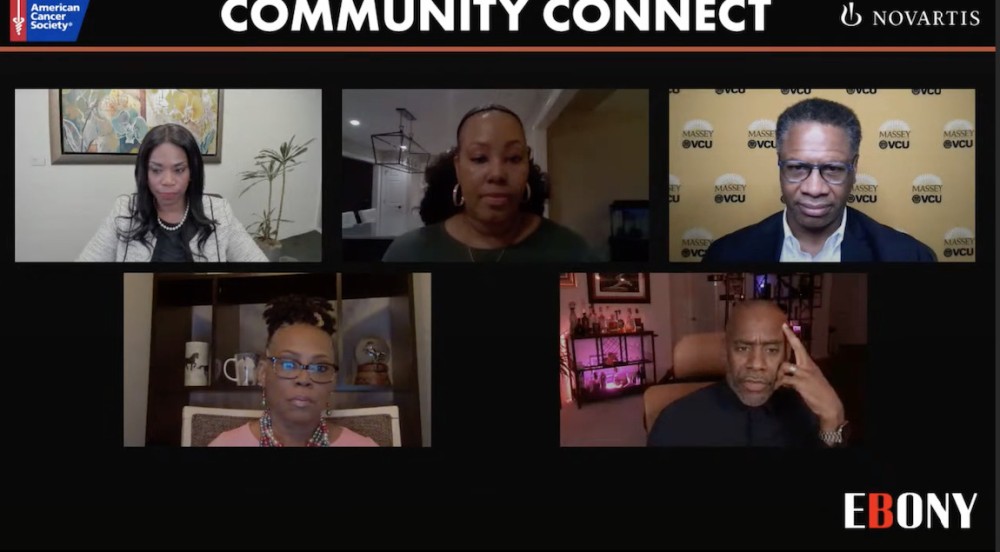As we still find ourselves in the throes of a global pandemic, COVID-19 has exasperated many other health issues within the Black community including various forms of cancer. According to the Clinical Research Center’s study Similarities in Risk for COVID-19 and Cancer Disparities, “COVID-19 disproportionately affects racial and ethnic minorities, particularly African Americans, with an observed 2-fold higher rate for hospitalization and greater than the 2-fold higher rate for death as compared with White Americans. The disparity seen with COVID-19 is consistent with patterns of disparities observed for cancer; it is well documented that 5-year survival rates for multiple cancers are lower in African Americans compared with white Americans.”
To spotlight the alarming health trends, EBONY hosted the latest installment of our “Community Connect” series sponsored by Novartis about the work being done to increase cancer screening rates and access to care in the Black community. Jeff Johnson moderated an enlightening conversation with panelists Reshema Kemps-Polanco, Executive Vice President and Head, US, Novartis Oncology; Jamil Rivers, Metastatic Breast Cancer Thriver; Dr. Robert Winn, Director of VCU Massey Cancer Center; Cheryl Dotson, a Breast Cancer Survivor; and other participants from the American Cancer Society.
Dotson shared her story about her breast cancer diagnosis and said that her life’s purpose is to empower other Black women by sharing her experiences.
“I feel like I was left here to be able to share my story about the importance of early detection,” Dotson said. “Because without that, it would have totally been a different situation. So early detection is everything.”
Dr. Winn talked about how critical cancer screenings are and how the pandemic has impacted the Black community in getting screened.
“We know that over 10 million people have preventable cancer and did not get screened because of Covid last year and those preventable cancers are the ones that can be screened” Winn explained. “Breast cancer, colon-rectal cancer, prostate cancer, cervical cancer, and none of those 10 million-plus people were screened last year. We’re thinking that over the next 5-7 years we’ll have an increase of almost 30% more deaths from breast cancer, 32% more from prostate cancer…”
Kemps-Polanco spoke on how Black people must have a plan for their health from a personal experience she had losing her best friend to breast cancer
“It’s important, that as African-Americans, we have a plan for our health and that we’re getting out in front of it,” she said. “Screening is important for early detection and it can save many lives.”
Rivers spoke about her diagnosis as a Black woman under 40, and as a metastatic breast cancer thriver.
“I think more Black women need to understand and have this on their radar,” she said. “Me personally, I was diagnosed under the age of 40 prior to that recommended mammogram. There was no strong history in my family and I did not have the traditional lump. Most Black women that I run into don’t know that Black women are dying from breast cancer at a 40% rate.
According to the Breast Cancer Prevention Partners, African American women face disproportionate exposure to breast carcinogens and the highest risk of serious health impacts from the disease.,
If you missed the run of this meaningful conversation on the importance of cancer screenings, not to worry; you can check it out below:













